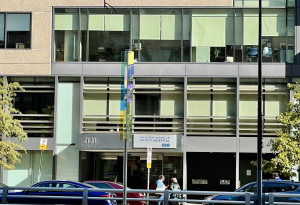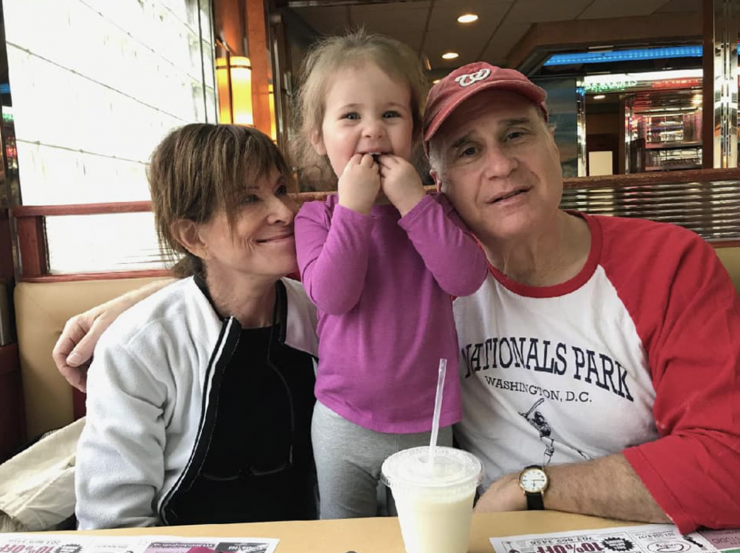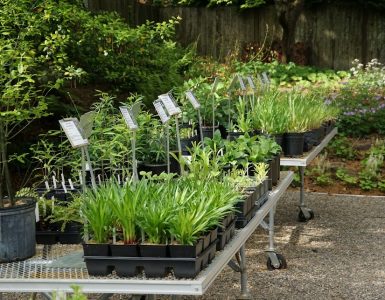The number of kidney transplant procedures in Maryland last year was the lowest it has been since 1997, according to decades’ worth of data. Health experts attribute the lack of donors and COVID-19 to the imbalance in supply and demand.
Jan Maxwell, 70, of North Bethesda, Maryland is one of nearly 100,000 Americans needing a life-saving kidney transplant. Maxwell has end-stage kidney disease and said she feels the repercussions of this imbalance.
Kidney transplants are sometimes needed to treat kidney disease and diabetes, stated Dr. Terry Watnick, a nephrologist at the University of Maryland Medical Center. Maxwell has polycystic kidney disease, or PKD, a genetic condition that causes cysts to grow on the organ, preventing it from filtering toxins from the body.
Those with PKD manage the condition by adopting a low-sodium, low-protein diet and exercising, Maxwell explained. “Then, all of a sudden, they do a dive,” she said. “There’s just a precipitous fall over a short period of time.”
Diagnosed with PKD in her early twenties, Maxwell realized she needed a transplant just five years ago. Her brother and sister, who also have PKD, have already undergone kidney transplants.
“The way I describe it to people is I went from being kept alive to living,” Susan Smelin, Maxwell’s sister, said regarding her transplant 12 years ago. “Because on dialysis, you’re basically kept alive. And when you’re transplanted, I feel you’re back among the living.”
Smelin, 66, of Riverdale, New York said she was lucky to find a living organ donor within a year of looking. She did not know her donor, Sandy Mattingly, 67, before the matching process. He is what people call an “altruistic donor.”
“We have opportunities throughout our lives to do good things, less good things and bad things, and we all take each of those opportunities sometimes,” Mattingly said.
He stated organ donation brings renewed hope to the recipient but is not a “get out of jail free card” nor an “I get to heaven card.” Rather, it is “I did this, but I have the rest of my life to live,” he said.
Smelin told The Wash she is happy Mattingly is in her life. Now, she is trying to help her sister find her own “kidney-in-law,” as Mattingly put it. The family published a website called “Kidney 4 Jan” to educate the public about kidney donation and Maxwell’s need.
Maxwell said she has more life to live as a mother, grandmother, wife, sister and advocate for survivors of intimate partner violence. She is at a point where she will soon decide whether to get on dialysis. But she said the possibility of a transplant brings her hope for a longer and better quality of life.
“It would mean I could stay alive and be healthy and continue my work and continue with my family,” Maxwell said. “It would allow me to continue living. It’s as simple as that.”
But Maxwell, who has been on the waiting list for over three years, said people in the D.C. metro area may stay on the list for up to eight years. With Maryland’s rate of kidney transplants at its lowest since 1997, she and others may have to continue waiting.
The lack of donations from living donors is mainly driving this decline, as shown by data from the Organ Procurement and Transplantation Network. Dr. Roberto Kalil, a nephrologist at the University of Maryland Medical Center, explained this is partly due to rescheduled elective procedures last year when hospitals were overrun with COVID-19 patients.
But donations from living kidney donors are preferred, so the recipient does not have to go on the waiting list or endure dialysis. A kidney from a living donor can also support a recipient nearly twice as long as a kidney from a deceased donor.
“Science has shown that you are no more at risk by having one kidney versus two in regard to kidney disease,” said Joy Paul, who established the Ron and Joy Paul Kidney Center with her husband in 2015. “Because if you have kidney disease, it does affect both kidneys.”

Joy Paul’s husband, Ron Paul, 65, has undergone two kidney transplants almost 20 years apart. The donations made by his living donors “really gave us a normal life,” Joy Paul said.
Mattingly said he has had no adverse health effects from donating a kidney to Smelin. He told The Wash his greatest risk is injuring his kidney since he only has one. Still, he encourages others to consider organ donation to people like Maxwell.
“If you would consider any elective surgery that involves general anesthesia to be not such a big deal, then you should seriously consider this,” Mattingly said. “The opportunity to make such a dramatic difference in any person’s life — a person you would come to know — is pretty amazing.”















Add comment